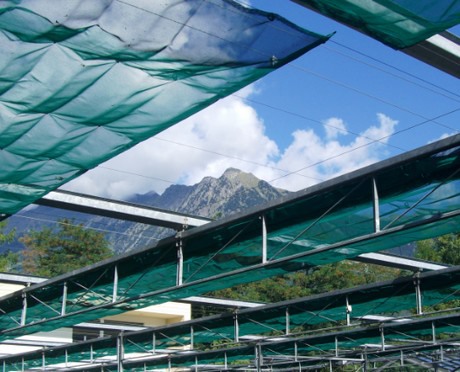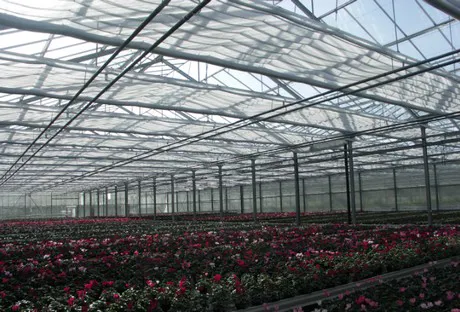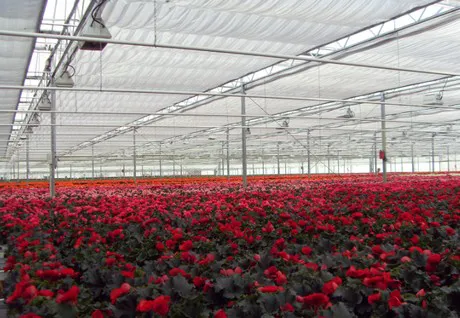Reimann-Emsdetten was founded in 1952 as a textile producer for technical applications, starting with products such as jute fabrics for tree nursery burlap. Reimann was one of the first to introduce shading screens for greenhouses into the horticultural market approximately fifty years ago. The company currently also offers products for other sectors, such as fabric coatings for isolation, but the horticultural sector is still the source for over 50% of its revenue.

In 1973, during the energy crisis, the company launched its first energy saving screens and it was also one of the first to launch flame retardant fabrics under its protected brand PYROTEX®, which have been redeveloped and refined over the years under the following brand marks: PYROSILVER®, ALUSCREEN®, PYRO NET® and REIMATEX®.
A greenhouse protected by flame retardant materials will normally be safe from fires, preventing their spread. With regular screens, the entire greenhouse may be consumed within minutes “and this happens since aluminium started being used because of its high reflection properties, as it is a highly flammable material,” assures Monika Reimann, of Reimann-Emsdetten.

Nowadays, the fibres employed in the production of such screens, even the aluminium stripes, need to be flame retardant, UV-resistant and capable of enduring the climate conditions inside and outside the greenhouse. According to Monika, production standards have moved forward and costs have consequently become more reasonable. As a result, the difference in price between flame retardant and regular materials has decreased.
In Germany, fabrics have been classified into three grades: B1, which is flame retardant; B2, which will not burn easily and B3, which burns easily. The old screens with aluminium are graded B3. Monika explains that “in Germany, in the Netherlands and other European countries, firefighters will normally advise the installation of B1 retardant screens and, since 2006, German insurance companies in most cases will refuse to insure growers who do not make use of them.”
According to Reimann, non-flame retardant materials are still being sold, mainly for the lower tech greenhouses. She said that in these cases, the greenhouses are low cost and expensive screening materials do not make too much sense. “Growers, who build modern high-end greenhouses choose flame retardant screens, because the extra cost is a fraction of the cost of a new greenhouse, while it can save you a lot of troubles.”

In the coming years, flame retardant screens should become more and more popular, because of safety reasons, Reimann-Emsdetten offers a very wide range of materials: single and double layer screens for shading, energy saving and blackout screens with a very long lifetime, screens with and without aluminium and in many colours. The company is also in constant touch with fibre producers and universities to ensure that the most up to date materials available and the latest technical standards are always used.
 For more information:
For more information:Reimann-Emsdetten
Monika Reimann, Managing Director
info@reimann-emsdetten.de
http://www.reimann-emsdetten.de/en/
